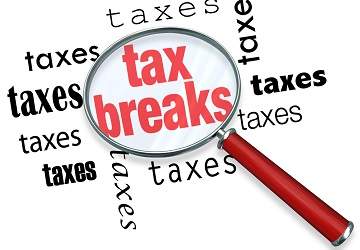Never buy a vehicle just for the tax write-off!
Unless it is a desperate, last minute temporary fix to defer or delay taxes. For example, it's December and you know you will owe $20,000 in federal taxes and don't have the funds. You may be able to buy a $60,000 truck with zero down financing and get a tax refund of $4,000 instead.
However, if you need the truck, suv or van and it will assist you in the production of income, lower your operating costs, make your life easier or make you happy, then go ahead and buy. Some people prefer to drive a truck, suv or van over a passenger vehicle but usually these vehicles are meeting a need to haul bulky stuff.


Mileage Rate vs Actual Expense
Generally if you put 15,000 miles or more on a passenger vehicle that has reasonably low operating costs, you will be better off using the mileage rate. If you drive a more expensive vehicle and put fewer than 15,000 miles per year on it, you will be better off using actual expenses.

Depreciation deductions for most cars and trucks are limited by the "luxury car/passenger vehicle" limitations imposed by the IRS under Code Section 280(f). Vehicles with a Gross Vehicle Weight Rating (GVWR) greater than 6,000 lbs. avoid these caps or limits!
Beginning on Jan. 1, 2019, the standard mileage rates for the use of a car (also vans, pickups or panel trucks) will be: 58 cents per mile driven for business use, up 3.5 cents from the rate for 2018.
If you use your truck, van, suv or car in your business, you can deduct the costs of operating and maintaining it. You generally can deduct either your actual expenses or the standard mileage rate.
It is important that if you use your vehicle for both business and personal use, that you track the mileage for each category of use (whether you claim actual expenses or the mileage rate). Instead of figuring actual expenses, you may be able to use the standard mileage rate to figure the deductible costs of operating your car, van, pickup, or panel truck for business purposes.
Nobody writes down odometer readings everyday. If you did, you'd spend more time on recordkeeping than making money. Keep track of your mileage the easy way. Little LogBook is an automated electronic GPS trip logbook solution that takes away the responsibility and inaccuracy of manually recording trip logs. Highly sensitive and accurate SIRF GPS chip provides world-class trip logging. Plug and Go - No vehicle Installation Required. Secure - Device is password secure so your movements cannot be studied should your device be lost or stolen. Free software updates - They'll keep your software up to date and cutting edge, for free.
You can use the standard mileage rate for a vehicle you own or lease. The standard mileage rate is a specified amount of money you can deduct for each business mile you drive. It is announced annually by the IRS. To figure your deduction, multiply your business miles by the standard mileage rate for the year.
Generally, if you use the standard mileage rate, you cannot deduct your actual expenses. However, you may be able to deduct 100% of business-related parking fees and tolls. In addition, you may deduct the business percentage of interest on your vehicle loan, and certain state and local taxes.
How to figure the business percentage use of your auto.
You drove your van 20,000 miles during the year. 16,000 miles were for business and 4,000 miles were for personal use. You can claim only 80% (16,000 / 20,000) of the cost of operating the vehicle as a business expense.
If you want to use the standard mileage rate for a car you own, you must choose to use it in the first year the car is available for use in your business. In later years, you can choose to use the standard mileage rate or actual expenses.
If you want to use the standard mileage rate for a car you lease, you must choose to use it for the entire lease period.
Actual Expenses
If you deduct actual expenses, you can deduct the cost of the following items: depreciation or lease payments, rental fees, garage rent, licenses, repairs, gas, oil, tires, interest, insurance, parking fees and tolls.


